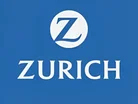Zurich: How Driverless Vehicles will Impact Motor Insurance

The rise of autonomous vehicles is reshaping the motor insurance sector, with insurers positioning themselves as intermediaries between vehicle manufacturers and end users in anticipation of widespread adoption of self-driving technology.
Legal Framework Evolves
The UK government's Automated and Electric Vehicles Act establishes a framework for insurance claims involving autonomous vehicles.
The legislation addresses vehicles operating with high or full automation, as defined by the Society for Automotive Engineers International's six-level classification system.
The Act positions motor insurers as the primary point of contact for claims, allowing them to subsequently pursue manufacturers if accidents occur due to system malfunctions in autonomous mode.
Barry Stevens, Senior Technical Underwriter at Zurich Insurance Group says: “It relieves the injured party from having to establish whether it was the driver or the car who was 'driving' at the time of the accident - and if it was the car, subsequently having to pursue a potentially costly and complicated claim against the manufacturer.”
The legislation introduces a provision allowing vehicle operators to claim against their own insurance policy when not physically controlling the vehicle during an accident, marking a departure from previous regulations which prevented policyholders from claiming against their own policies in cases of component failure.
Technology Risk and Compliance
Vehicle owners retain responsibility for maintaining autonomous systems, including software updates and correct operation of the technology. This creates new categories of risk for insurers to assess and price into policies.
“Brokers should ensure their customers understand the capability of the car they wish to ensure, and what responsibilities rest with them around safe use of the available technology and keeping any such systems up-to-date and operating effectively,” says Barry.
“We see a crucial role for motor insurers as enablers of change, and in supporting the adoption and use of autonomous driving technology”
Business Model Disruption
The motor insurance sector faces structural changes as vehicle ownership patterns evolve. Personal Contract Purchase agreements are becoming the primary method of vehicle acquisition, replacing traditional outright purchase or finance arrangements.
The high cost of autonomous vehicles, combined with ongoing requirements for hardware and software upgrades, suggests this trend will continue.
This shift indicates a move from individual insurance policies toward fleet-based coverage models.
Manufacturers may begin offering insurance as part of comprehensive vehicle service packages, fundamentally altering the relationship between insurers, manufacturers, and vehicle users.
Zurich Insurance Group is conducting autonomous vehicle trials globally to understand these emerging risks.
While traditional insurance concerns such as theft, weather damage, and vandalism remain relevant, new threats such as cyber-hacking of vehicle systems require additional consideration.
The transition toward autonomous vehicles introduces complex questions about liability and risk assessment. Insurers must balance traditional vehicle risks with emerging technological threats while maintaining coverage accessibility.
Barry says: “We see a crucial role for motor insurers as enablers of change, and in supporting the adoption and use of autonomous driving technology.”
Make sure you check out the latest industry news and insights at InsurTech and be part of the conversation at our global conference series, FinTech LIVE.
Discover all our upcoming events and secure your tickets today.
InsurTech is a BizClik brand
Featured Articles
Markel's fintech insurance chief warns of rising synthetic fraud as 79% of UK firms lose £500K+, with new regulations shifting liability to providers
German insurer Allianz cites changing customer preferences and technology advances as workforce reduction affects multiple business lines
Charles Taylor InsureTech launches 'Bordereaux Sync', an AI-powered tool that screens and repairs data errors before they enter management systems





